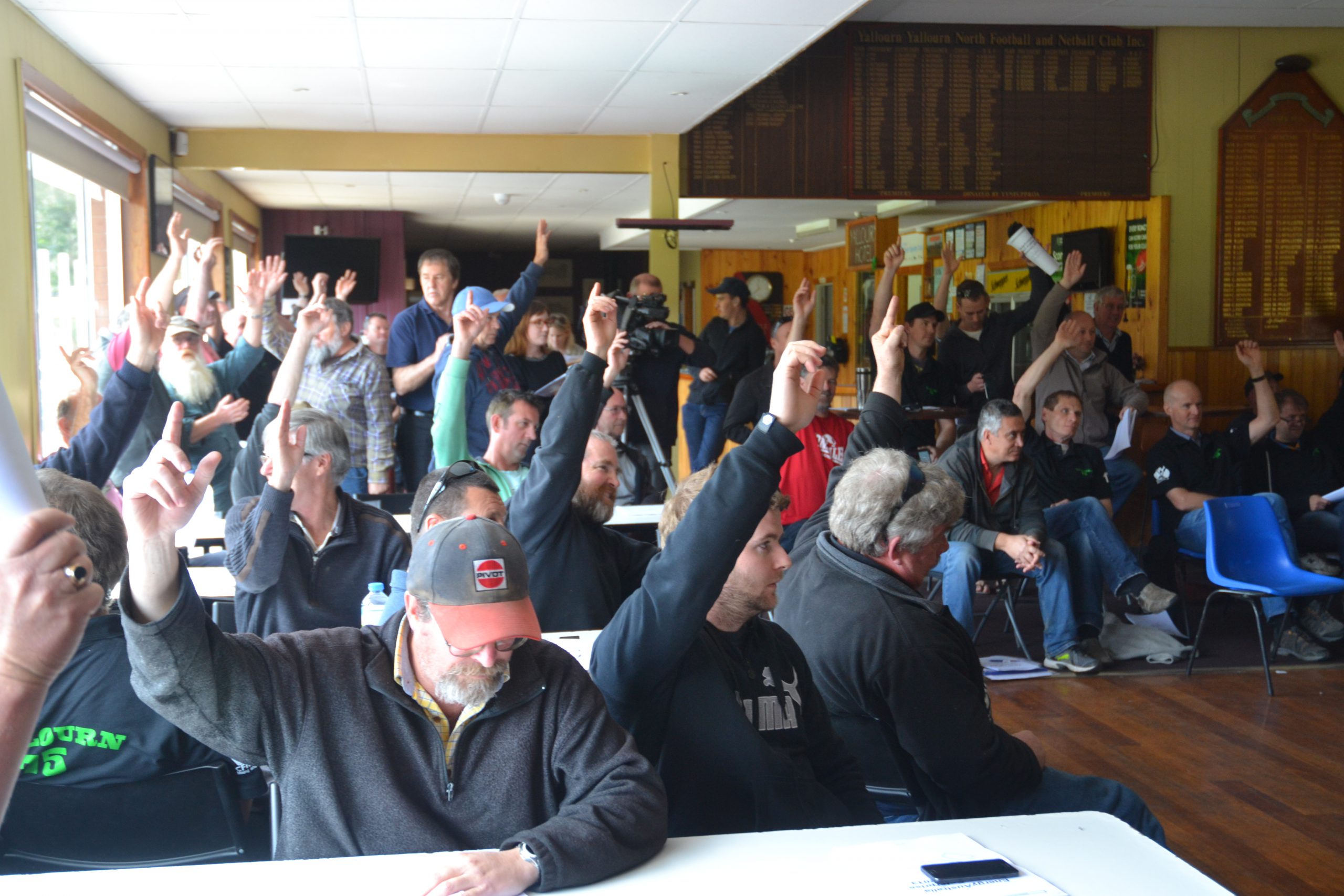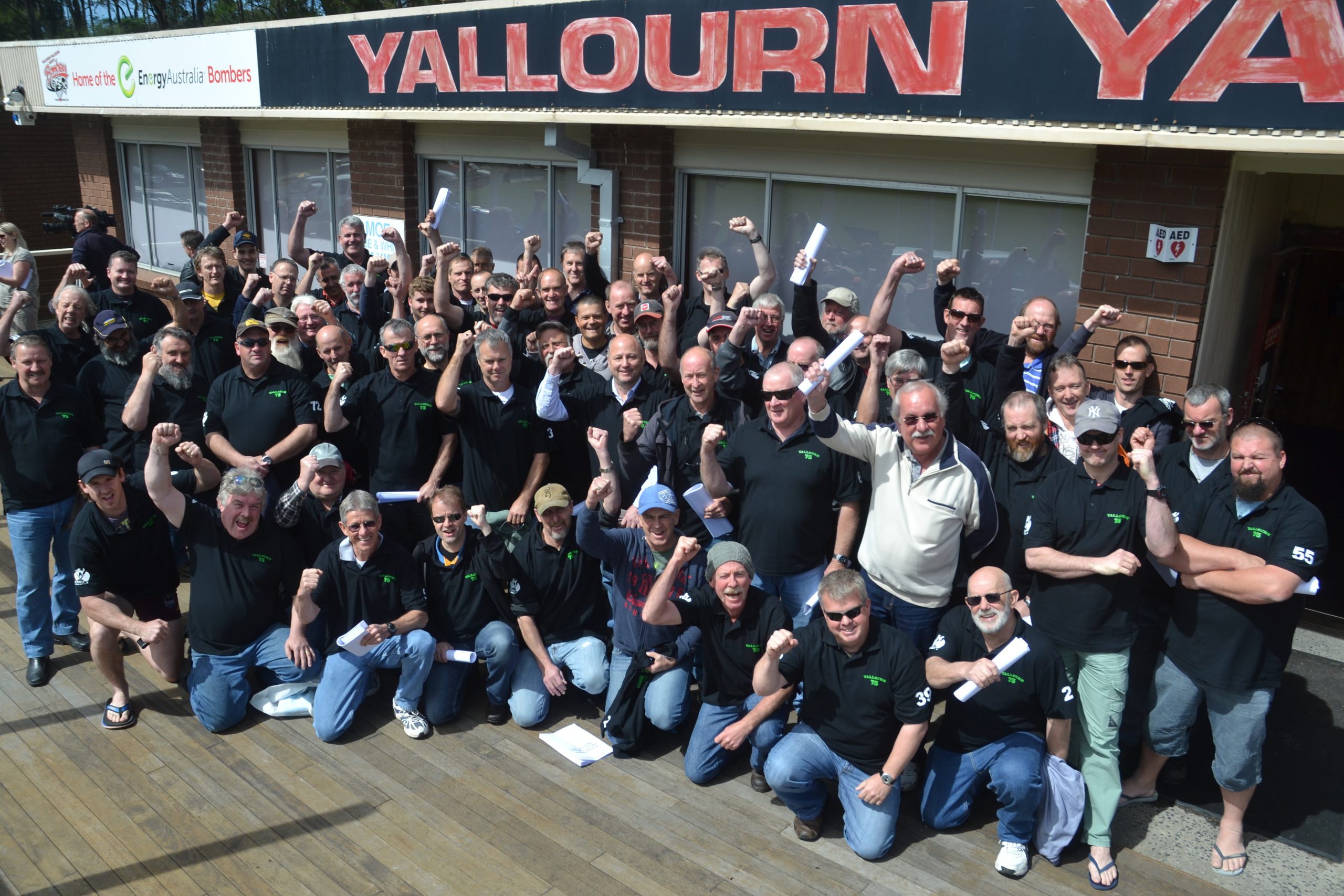RELATED COVERAGE : A workforce divided
When locked out Yallourn power station operators packed the local football club rooms to informally vote up a new enterprise agreement on Friday, it was the moment many in Latrobe Valley’s power industry had predicted would never come.
Paving the way for the operators to re-occupy their computer console positions next week, the not-quite unanimous vote by Construction Forestry Mining and Energy members brought to an end the longest lock out in the power industry’s history, and a toxic 13-month dispute steeped in raw emotion.
Earlier in the year, both sides had become hopelessly entrenched in their positions regarding a handful of key conditions in the EA under negotiation, in a process plagued with negotiation breakdowns, legal manoeuvring, industrial action, and the postponement of a major maintenance shut.
And then there was that fateful day on 21 June, when operators commenced a 48-hour generation ban as part of protected industrial action, only to be swiftly locked out, but not before a fire broke out in a high voltage switchboard bringing the whole station offline.
“There was total lack of understanding of each other’s real positions -we both misjudged each other’s determination; we thought the company wouldn’t lock us out, and when they did, they thought we would surrender,” CFMEU mining and energy Victorian president Luke van der Meulen said, who took over as lead negotiator from Greg Hardy in August.
“To be honest I was very reluctant to take over; this dispute was a poisoned chalice, and very little progress had been made in 12 months.
“But there was a lot of concern from a lot of quarters about what was going to happen to these boys, particularly because the (Federal) Government was about to change, and the fear was a new minister would get involved and force arbitration (by FWA).”
The locked out operators were already mentally preparing themselves for Christmas 2013 in their protest camp outside station grounds, while reports had emerged EnergyAustralia had posted rosters for their stand-in operators until mid-2014.
In his first personal incursion into direct industrial negotiations in his career, Mr Hutchinson secretly met with Mr Van der Meulen and his vice-president counterpart Graeme Middlemiss in August, agreeing to a series of face-to-face negotiations in neutral locations across the Valley.
In the void of progress, it was a fertile rumour-mongering ground, where an ‘all’s fair in love and war’ approach led to juicy and sometimes salacious rumours about either side, many untrue, spreading like wildfire throughout the power industry and beyond.
“Two days into discussion we were pretty much ready to walk out at that stage,” Mr Van der Meulen said.
“If we had’ve walked out, talks would’ve broken down, and from that point if either side calls the other then it’s seen as a weakness, but I didn’t want to put the company or ourselves in that position, as we badly needed to keep personalities completely out of it.”
By the following week, a milestone was reached on two major sticking points – a workplace dispute clause and working arrangement provisions.
“Those two things had finally became negotiable, and we reached settlement on both of them – after that we were sailing on tail wind, and took about eight days.”
With the in-principle agreement voted up by CFMEU workers on Friday, both sides have labelled the milestone as a win for their respective positions – operational flexibility and workforce security – a balanced position seemingly unimaginable only two months ago.
Mr Van der Meulen expressed pride in the resolve of his workers who maintained ‘peaceful protest’ throughout the dispute, resisting the formation of a picket line at the station gates, which he said had been a point of fierce discussion throughout the entire dispute.
“I was prepared to put my neck on the line, as long as Hutchinson did too, and he really did, at that point the more senior EnergyAustralia management really demonstrated a willingness not to be led adrift by headstrong personalities, and we got this thing home,” he said.
“So credit where credit’s due.”
As the man who ultimately had to answer to EnergyAustralia regarding the dispute’s outcome, Mr Hutchinson expressed equal relief over the in-principle agreement.
“This has been extremely difficult to manage because there’s a very important human factor in this whole process, and that’s what has made it difficult; it very much is not just about dollars and cents,” Mr Hutchinson said.












